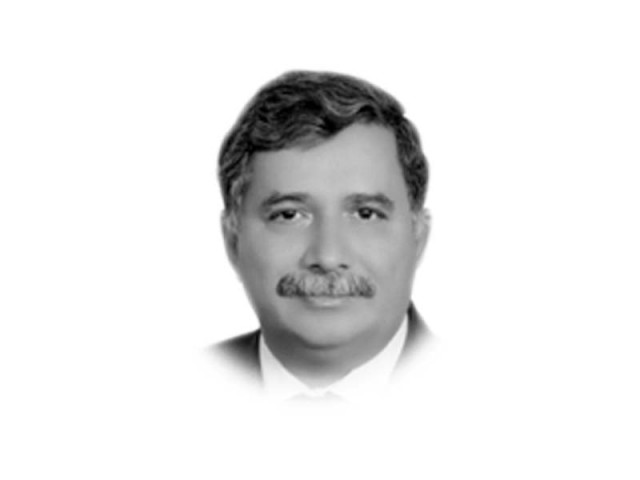Ideology, cadre, political parties and leaders
History witnessed different stages of social development with a change in the means of production

“After ages, political process has returned to our village. Tomorrow is a convention of the party,” remarked a jubilant worker on the joining of a turncoat on a social media forum. On my inquiry if the party was deficient of committed workers in the area, the young activist replied, “The party base is there, the structure is there too, but the ideology is missing.” The area in question happened to be an area which had always remained vibrant with ideologically committed party cadre.
In the broader perspective, history tells us that ideologies have played a vital part in changing the world. Change is a constant phenomenon and ideology acts as a propelling force to bring about such a change within society. No doubt leaders, philosophers and ideologues alone did not bring such a change, but they had done so with a well-knitted team of dedicated people imbued with the ideology of change. This team which we may also call a cadre vehemently pursued and carried forward the message. The ideological process emerging out of the material conditions always remained the central spirit of a movement, catalysed by a leader.
In this process, history witnessed different stages of social development with a change in the means of production. We witnessed transformation of feudalism into capitalism and imperialism; a worse form of capitalism. While capitalism had its ugly shape in the form of class exploitation it also gave birth to the concept of nation sates and values of democracy. With this also emerged political parties acting as vehicles to carry forward the political philosophy.
Although these imperialists have captured most of the lands in the world and exploited the resources of the conquered, every phenomenon, in terms of the Marxist lexicon, has its own contradictions. Colonial imperialism also spread ideas of democracy, nationalism, socialism and national liberation. The natives of colonies, especially India, went abroad to seek education where they were not only exposed to those ideas but also intermingled with freedom loving writers, poets and political activists who made lasting impressions on their minds. For instance, “liberty, equality, fraternity” the slogan of the French revolution; the writings of Rousseau expounding the general will of the people and people’s sovereignty; Locke’s political theory in support of constitutional monarchy and creation of the state by the will of the people; Voltaire’s championing of reason, cosmopolitanism, justice, human dignity and tolerance as well as progress; Bacon’s scientific reason; JS Mill’s individual’s liberty; Darwin’s theory of evolution; Karl Marx’s theory of socialism; Tolstoy’s peace and non-violence, fired their imagination.
Having read those thinkers and observed political parties, they also yearned for notions of liberty, self-rule and equality of opportunities. The otherwise scattered people torn into castes, tribes and ethnic groups could only be woven together through an organisation. Hence the idea to establish a political party was born. The emergence of political parties cobbled the divided groups with a sense of nationalism and pride in their own culture. These parties, particularly the Indian National Congress, developed party cadres which ran the network all over India. Those cadres under the leadership of Gandhi provided pool of leadership at national and local levels. Soon, they were able to organise mass movement for national liberation, ultimately resulting in independence in 1947. In contrast to this, the Muslim League could not organise cadres and the leadership remained in the hands of a few feudal lords.
One of the major fault lines in the governance of Pakistan was the revolving of politics around the political elite belonging to the feudal class. Congress and the government in India also remained under the charisma of Jawaharlal Nehru, which was carried over by his daughter and then grandson Rajiv. However, with the passage of time and new emerging realties, the charisma of the Nehru family no longer worked. The voters have moved away from charisma-led Congress to the BJP which represents the middle class and is credited with an elaborate system of cadre-based leadership. The success of the party is largely due to its well-organised cadre system.
The magic of the charisma of different dynasties is no longer appealing to the people. This is why in Pakistan new political forces have emerged in the traditional strongholds of charisma-based parties. One of the major reasons is that these parties are in the habit of relying upon the past laurels of their dead leaders and never gave serious thought to organising ideologically trained cadres. For decades the same old faces occupied all positions of prominence which in turn not only made the younger aspirants feel alienated but the fast expanding trading class and professionals also found the party unwelcoming to them. These new emerging classes found opportunities of political growth in the newly-formed parties. On the contrary, in the UK, the Labour Party and Conservative Party have developed cadres acting as nurseries to provide new leadership whenever the need arises.
The lessons drawn from the political development in the country and of developed democracies are that only a political party that has a sound cadre can survive the rigours of time and remain popular.
Published in The Express Tribune, November 4th, 2020.
Like Opinion & Editorial on Facebook, follow @ETOpEd on Twitter to receive all updates on all our daily pieces.















COMMENTS
Comments are moderated and generally will be posted if they are on-topic and not abusive.
For more information, please see our Comments FAQ